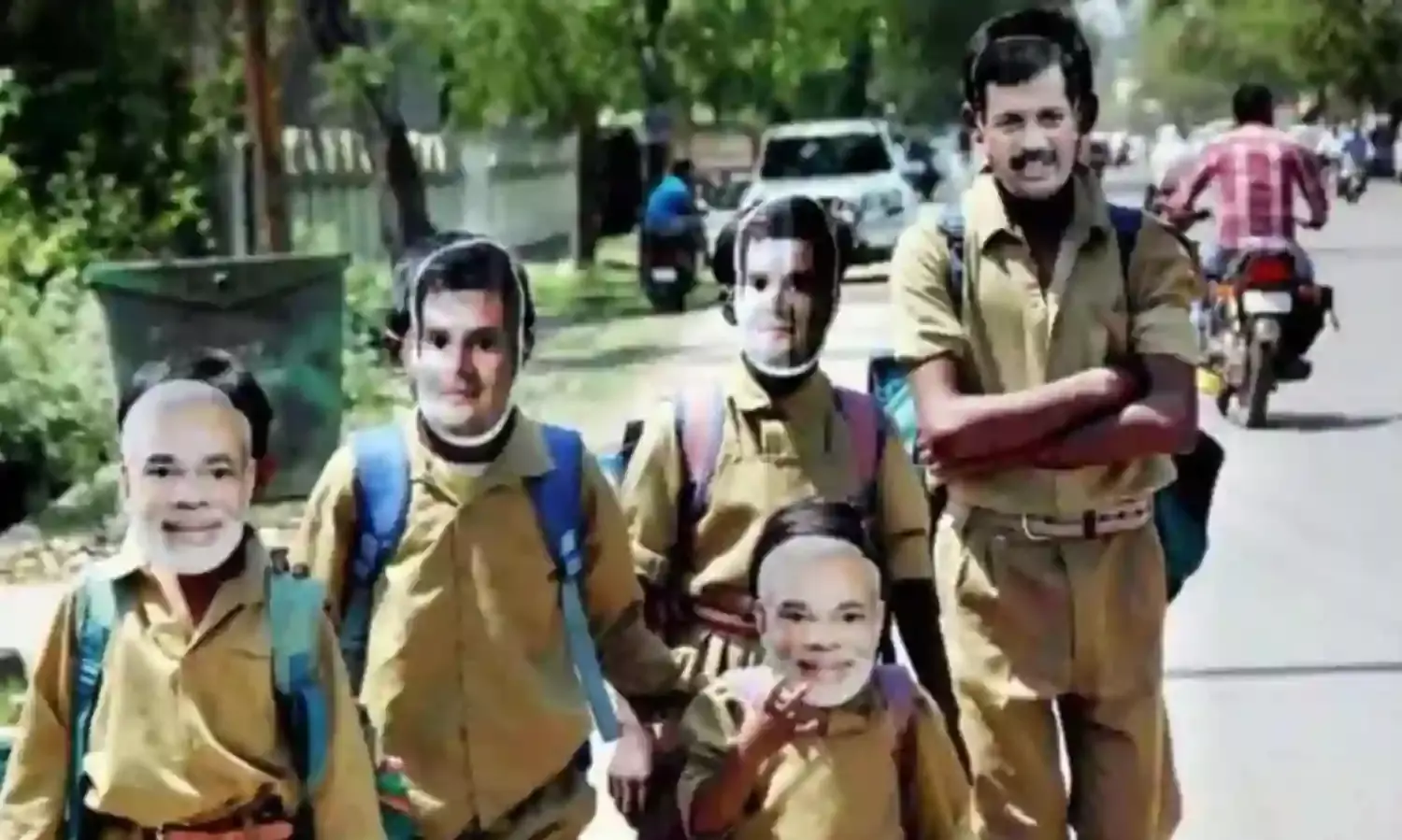Data Mining May Determine How 100 Million Indians Vote for the First Time in 2019
‘All our political parties are using data mining and manipulating behaviour’

“Data Mining or profiling would mean that someone with the intent and the resources could get to know what your likes are, what your hobbies are, what your online behavior is, what time you log in what time do you log out and therefore has a digital fingerprint of you,” Prodyut Bora tells The Citizen. Bora was the founder of BJP's IT cell in 2007 but had left the party in 2015, and now has his own party called the 'Liberal Democratic Party'. The gist of the matter is that through the use of data mining someone could become your friend without your knowledge.
This digital fingerprint is all the more crucial today, as according to the Election Commission of India, there are about 2.6 crore people between the ages of 18 to 20 who have already registered to vote. For the 2019 general elections, 100 million voters will be exercising their democratic right for the first time.
This is a stratum that no political party can or would want to overlook. Political circles are filled with conversation on this first time voter, with a top Congress politician recently telling The Citizen that given the huge numbers of first time voters and voters under the age of 35, social media and digital strategy is a key campaign priority for more all political parties.
A part of the battle for 2019 will be fought on the internet, with social media emerging as a key weapon. The power of leveraging social media to influence and determine political action first came to our attention with the Cambridge Analytica controversy -- a major political scandal centering around the news that the had harvested the personal data of millions of people's Facebook profiles without their consent and used it for political purposes. It has been described as a watershed moment in the public understanding of personal data.
"If someone has all the info about your online behavior, they can twist the message accordingly, the possibility of mischief is immense." said Bora, underlining his concerns over the use of such tools. But, is it happening at a scale that is worrying? Is data mining as prevalent in our country as it is in the west? "I think data mining is already a concern especially after the Cambridge Analytica controversy, but you know that all political parties, and not just the BJP or the Congress, all the parties are using data mining tools. They have hired agencies, they manipulate the data, so it is not a secluded practice, its spread across all the parties" said Sadhvi Khosla, a former volunteer for the BJP, and a political and social analyst.
Data mining has dominated headlines in the west, forcing congressional hearings with the big techies, but in India it’s still a subject that is often brushed under the rug. "There is lag between what happens in the west and what happens here, so while in the west there is a huge discourse about it, particularly after Donald Trump's election, that has yet to happen in India. Another fact is that data mining is a complex subject. For example what would people understand about profiling... it is very very difficult." Bora elaborated.
The concerns regarding such practices are not even brought up by the media, and the political parties keep their activities in this domain shrouded in secrecy. "No political party would come out and talk about it, because they are all guilty, all these apps have been accused for collecting private data. So, nobody would come and tell you their dark secrets." Khosla emphasized. With the run up to the Lok Sabha elections one would expect that the media institutions will give more attention to the subject but apart from a few reports here and there, there isn’t much information about the practice. " I think there is a lot of self-censorship in the Indian media, in the current climate. You know how life has become difficult for journalist, so there is a great deal of self-censorship on such matters," Bora said.
A handful of reports have emerged… Even during the recent state assembly elections, a report in the Hindu, titled ‘How Congress’ used its internal app to win Assembly elections’ said that 'The data analytics department, under Praveen Chakraborty, a former investment banker does number crunching and helps create voter profiles for every constituency. This, in turn, helps the candidate prepare a "constituency specific campaign" apart from larger themes.'
This prompts concern not only about the elections but also about the privacy of the people. In India, privacy is still not recognized as a primary concern or right by the people and this can be exploited by the parties in the election. "Tomorrow your identity can be masked, your identity can be stolen, your identity can be twisted, so there is a huge privacy concern... but I’m certain the people wouldn’t realize this in time, not before the elections at least,” Bora said.
"I think in 2014, I do not have the exact data in front me right now, but more than 120 parliamentary seats had direct social media influence, which were the urban constituencies. With the recent influx of data and internet connectivity around the country, I think social media would have influence on more than 250 parliamentary constituencies this time around," said Khosla.
The stakes are high, and your personal data and privacy are at risk.



